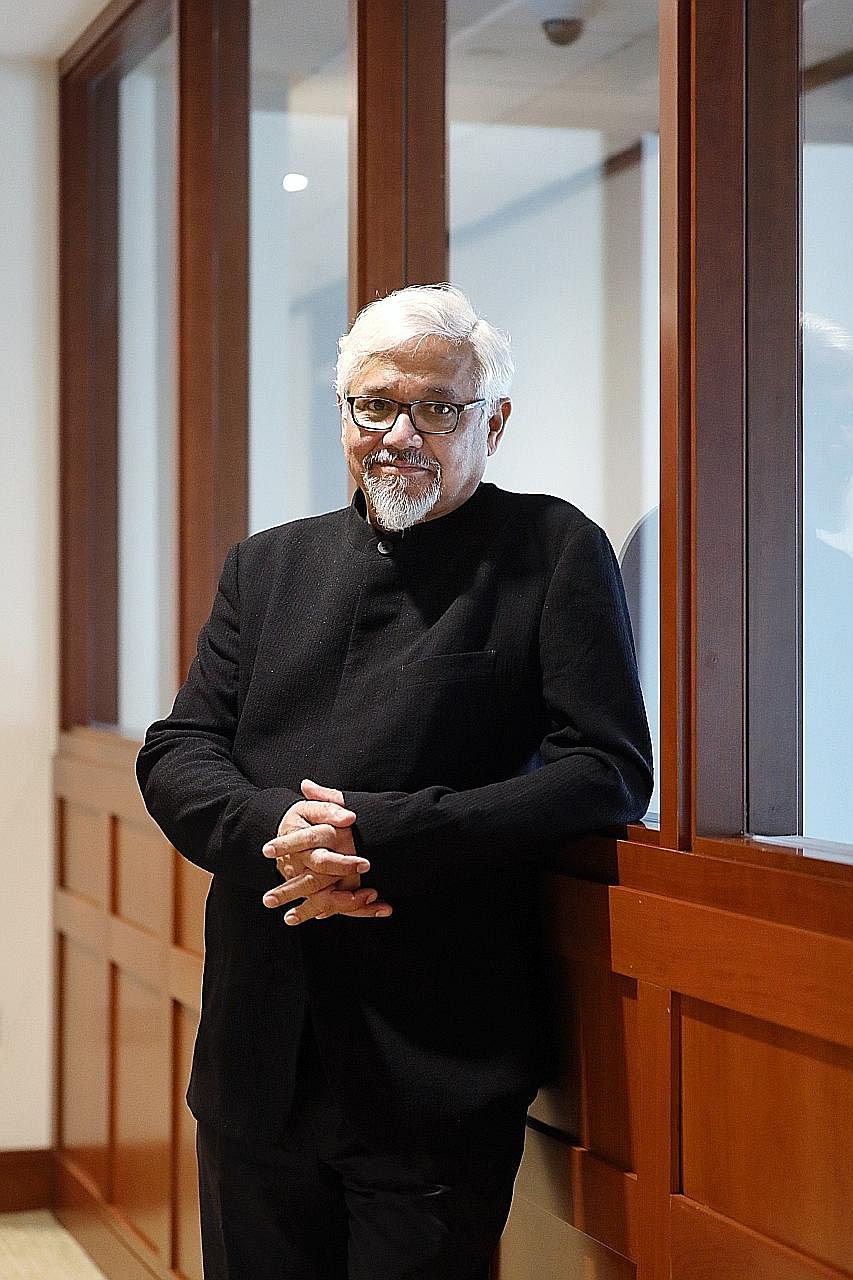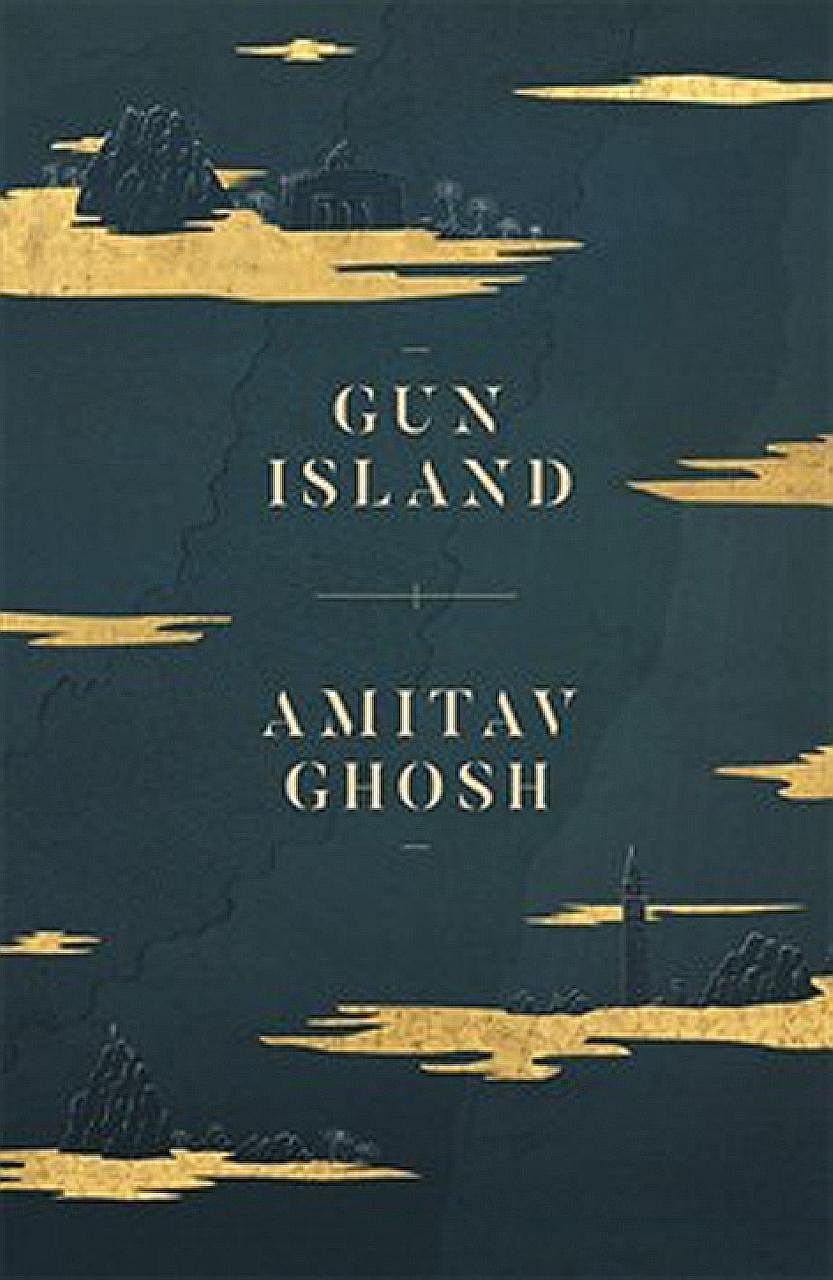Award-winning writer Amitav Ghosh keeps learning new languages in order to write his characters. His new novel has a couple of Italians in it, so he learnt Italian.
The 62-year-old, who is one of India's best-known writers, says this was the most enjoyable part of writing his new novel Gun Island, which will be published later this year.
"I find it is hard to understand your character unless you know their language," says Ghosh, who speaks six languages and previously picked up Cantonese to write the Ibis trilogy, an epic about the 19th-century opium trade, and Arabic for novels set in the Middle East.
"Most people very rarely write about characters who exist in another language. And yet that is the world we live in - it is so cosmopolitan and multi-national that we can no longer write about people who are just like us."
Ghosh was here last week for a public lecture at Yale-NUS College as part of its President's Speaker Series. To a packed hall of more than 300 people, he expounded on the topic "Can the non-human speak?" and the "muting and bruting" of not just animals and plants, but also other human races considered to be "lesser".
This is directly tied, he believes, to the despoiling of nature by humans and to climate change, which is the crisis that most concerns him today.
"It is the greatest challenge humanity has ever faced," says Ghosh, whose last book, the essay collection The Great Derangement (2016), addressed climate change. "It is impossible to ignore it.

"I think that for writers, that is a kind of duty that is incumbent upon us. We see the world around us, the sort of changes it's going through, and we have to respond."
His new novel is not explicitly about climate change, he says, although it is nevertheless present in the background.
The novel, his ninth, follows a rare book dealer who goes on a journey from India to Los Angeles and Venice, where his fate becomes entangled with the various characters he encounters along the way.
Ghosh is coy about the meaning of the title, Gun Island. "It would be a spoiler to explain it."
The point of departure for the story, he says, was a Bengali legend about a trader who runs afoul of the goddess of snakes and travels overseas.
"It's a story about migration in its broadest possible sense. It's about the world we live in, where things are moving faster and faster, where everyone - humans and animals - are being evicted. Everyone is having to adapt and change their ways of living."

By his standards, it is a short book - it runs to some 250 pages - compared with the door-stoppers of the Ibis trilogy. The last of these, Flood Of Fire (2015), crossed 600 pages.
"I wrote (Gun Island) in two years," he says, chuckling. "Usually my books take three to four years. That was a new experience for me, writing a book so fast."
Ghosh was born in Calcutta, India, to a Bengali Hindu family. He is married to American author Deborah Baker, with whom he has two children.
His long string of accolades include the Padma Shri, India's fourth highest civilian honour. The first book of his Ibis trilogy, Sea Of Poppies (2008), was shortlisted for the prestigious Man Booker Prize.
Ghosh, whose writings often deal with post-colonialism, made the controversial decision to withdraw his book, The Glass Palace, from the 2001 Commonwealth Writers Prize, as he objected to a prize for "commonwealth literature" being open only to books in English.
Asked what he thinks of the flurry of activities this year to mark the Bicentennial of the arrival of the British in Singapore, he says: "It is a significant date, no doubt about that but there were people on this island long before that.
"But certainly the replacement of Malacca by Singapore (as a key colonial trading port) was a very important moment in the history of the Indian Ocean.
"Malacca is a very old port, the pattern of settlement was very cosmopolitan. It had lots of Indians, Chinese, Arabs, Indonesians, Javanese people from everywhere. The people there interacted over centuries and had close relationships with one another.
"Singapore became the model of an imperial city - there were the British and everyone was below that. So (1819) marks an important transition from a pre-colonial cosmopolitanism to a European colonial settlement."
He adds: "The thing I hope does not get lost in all this is that Singapore was one of the products of the opium trade.
"The reason it could function as a free port was because everything was paid for by the opium auction. Every year, they would auction out the opium trade locally and that is what sustained the revenues of the city until the second World War. That part of history should not be whitewashed."
•Gun Island will be available in June.

